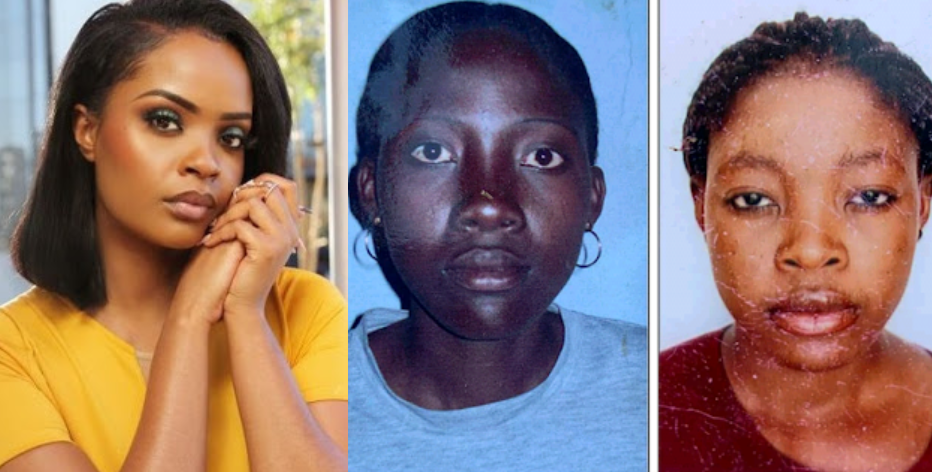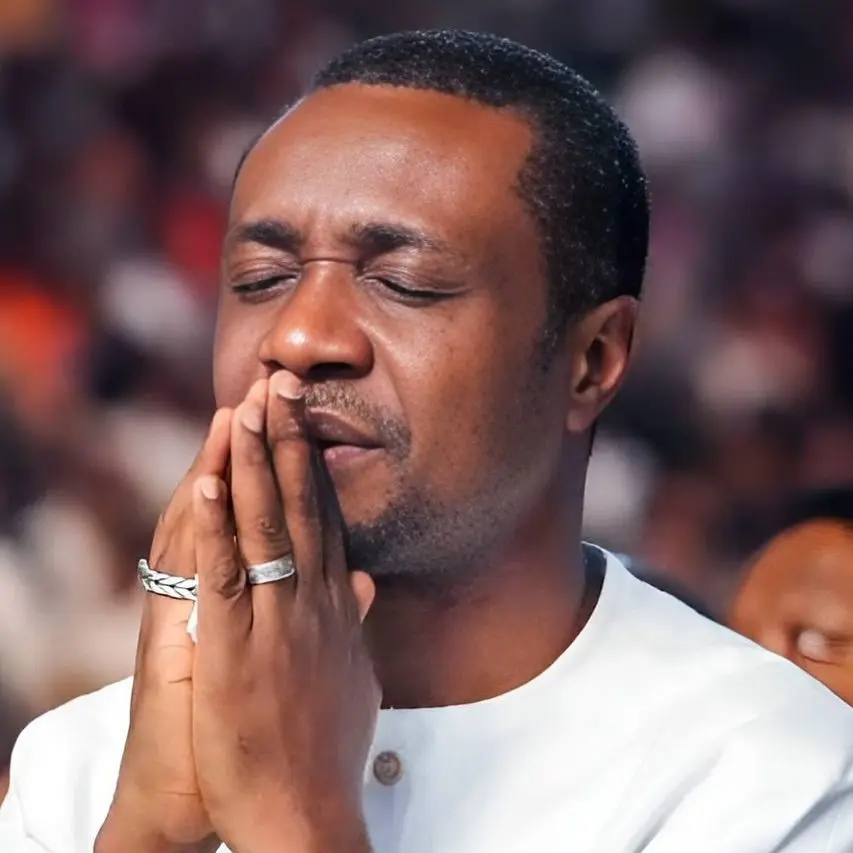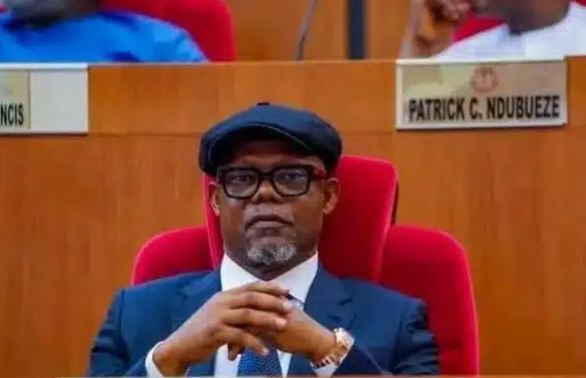The 2013 winner of the Big Brother Africa reality TV show, Dillish Mathews has reacted to the brutal murder of two sisters (women) in Namibia last Friday.
Ndamononghenda Nafuka, 23 and Martha Nafuka, 32 were brutally hacked to death at Oshaango in the Ohangwena region by the estranged partner of one of them.
According to reports the sisters met their fate after Samuele Enkono (29), the father of two of Ndamononghenda’s three children, allegedly hacked them with a panga before slitting their throats, and then proceeding to hang himself. Both women died on the spot, a few metres from their homestead.
Posting photos of the slain women, the Namibian beauty called for stricter punishment for cases of gender based violence and killings.
She further warned men to desist from leaving shallow comments in her post.
“Any man that comes and comment shallow comments, such as you should understand the story first, will not be entertained. You don’t own anybody, you’re not entitled to her life. Killing someone in a inhuman way is very sickening and should not be justified otherwise. The law is man made hence it can be amended given the endless killings, we can’t just watch on. But of course man will never get it because they don’t know how it feels to not be safe even in the comfort of your house.” She wrote.
Ohangwena police spokesperson warrant officer Abner Kaume Itumba, who confirmed the incident, and said Ndamononghenda and Martha were found dead with several injuries, while Enkono’s body was found hanging from a tree nearby. Enkono’s homestead is about a kilometre from that of the Nafukas.
“He hanged himself with a piece of wire. Martha was slashed on one cheek, and on the back. She had several wounds on her arms, and her throat was slit. Her sister was also badly hurt, a sign that she was trying to block the panga attacks, but to no avail,” Itumba said.
At the time of the incident, The Namibian learnt that villagers were attending a memorial service in the area, and therefore no one could come to the two women’s rescue.
The distressed mother of the two siblings, Ndamononghenda Andreas (58), told
The Namibian through sobs at her homestead on Saturday that she was unemployed, and that she will need money for coffins and other funeral arrangements. The date of the funeral is still to be decided after the police complete their investigations and give the bodies back to the families.
She added that Enkono’s family had not indicated whether they will contribute towards the burial of his victims. Andreas is a single mother whose husband died in 2007, and she had been depending on her two daughters for support. She had eight children in total, of whom three died years ago and the two who were murdered on Friday, leaving her with three.
She said Ndamononghenda was in a relationship with Enkono years back, and they have two children, aged six and five. Their relationship, Andreas said, ended when Ndamononghenda fell pregnant with her third child from another man three years ago.
“Just when her last-born turned two, he [Enkono] came back into my daughter’s life. She told me they had gotten back together, and he had forgiven her. Little did she know he had been holding a grudge against her,” Andreas narrated.
She said the two have always had a violent relationship, and Enkono was obsessive as Ndamononghenda was not allowed to let her phone battery go low, or to switch the phone off. The abuse, she said, escalated when they reunited.
Andreas said Ndamononghenda never reported the abuse she suffered at the hands of Enkono to the police.
“As a mother, I tried to intervene many times to spare her life,” she continued.
Andreas said a week before the killings, on 15 September, Enkono assaulted Ndamononghenda at a cattle water point with a knobkierie in broad daylight while people looked on.
The assault left her with a broken arm and bruised body. Andreas said she phoned the Eenhana Police Station on Sunday, but was told that the police do not deal with assault cases, and they must go to hospital.
“I did not have money to take her to hospital, so I tried the women’s network for help, but they too did not come. This was not the first time that the police have let me down. Last month, the two were fighting on their way from the cuca shops, and I called the police at Eenhana. They said they were coming, but never showed up. So, do police only come when there are dead bodies, but not when one needs help?” she asked.
Ndamononghenda went to the Onandjokwe Intermediate Hospital on Wednesday, and received treatment. She was instructed to return on Friday for her arm to be put in a cast of plaster.
“Thursday [19 September], he came to ask her if she had gone to the hospital, and whether she had opened a case against him. He also demanded to know how she had received treatment without a police report. Their conversation did not end well because Ndamononghenda told him she did not want him anymore as he had really hurt her,” Andreas said.
On the fateful day, Andreas said Ndamononghenda was in the company of her two sisters, who had offered to escort her to hospital. The oldest had gone ahead of the two, and was waiting for them to catch up with her. This sister has hearing impairments, and could not have heard any screams from her siblings.
What Andreas did not know was that it was the last time she would ever see her two daughters again, because they never made it to hospital, nor back home.
Andreas said the inhuman and violent manner in which the two were murdered haunts her the most, imagining the pain her children went through in their last hours on earth.
“I feel bad because I did not expect it. The person who killed my daughters did a terrible thing. If he had at least allowed one to live . . . but taking both of them is painful,” she lamented.
Andreas said Ndamononghenda had also indicated that once she gets help at the hospital, she was going to Omuthiya to live with an aunt to recover.
Ndamononghenda ended school in Grade 6, while Enkono left school in Grade 2. Martha’s level of education could not be established. They were all unemployed, and did odd jobs in their village.
Martha is survived by her mother, three sisters and four children. Ndamononghenda is survived by her three children.
Enkono’s mother, Nuule Muupika (61), said she did not notice any changes in her son’s behaviour, and the news of the murders and suicide had come as a shock to her.
“He was a very quiet person, and I did not expect him to do something like this. He woke up on Friday very early as usual to go and collect water. He did that, and told us to give the cow and calf water.
“When I asked him where he was going, he said he was going to get his phone cover, which he forgot at the animal watering point. He promised to be back for lunch. This did not happen, until the news reached us later in the evening of what he had done,” Muupika said.
She added that Enkono told her on Sunday evening that he had beaten Ndamononghenda, but did not say why.
“I questioned him why he did it. He did not answer, and that is where our conversation ended. I am so hurt, I have no words for the tragedy he caused. I have never heard such merciless killing in my time on earth,” Muupika stated.






















